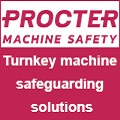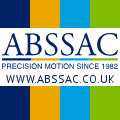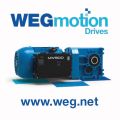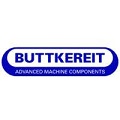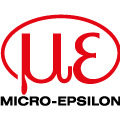
Posted to News on 9th Sep 2008, 12:14
Valve blocks cut machine build times by 30 per cent
Oystar Aerofill has adopted Festo's integrated multi-layer duct plate technology for the pneumatic logic and control functions of its latest-generation machines. By switching to this modular, fully-integrated form of pneumatic valve block, the company estimates that it can reduce the average build time of systems by 30 per cent.
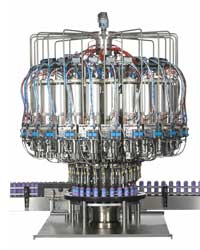
Oystar Aerofill, which is claimed to be the world's leading manufacturer in its market, has over 50 years' experience of the design and production of aerosol filling and closing equipment. The company works with many of the world's foremost aerosol manufacturers and produces an extensive range of equipment for processing aerosols containing products as diverse as hair spray, deodorant, paint, air freshener and insecticide. Oystar Aerofill's expertise covers every industry requirement, from semi-automated standalone machines to complete flexible manufacturing systems.
Every machine that Oystar Aerofill produces is bespoke and, if necessary, can be supplied as a fully ATEX-compliant unit for use in the propellant gas filling area of aerosol production. The company produces three families of products for use on index lines - two of these are pneumatically driven, the other uses electrical servos - together with a family of fully-automated high-speed rotary filling and closing machines for use on continuous motion lines.
Index lines are principally used by manufacturers that need to handle a high mix of different types of aerosols, with production runs limited to relatively small batch sizes. These types of production line essentially operate on a stop/start basis; each aerosol can, or small group of cans, is moved via a conveyor to the next successive processing stage, and progression of the line is then halted until that particular process has been completed. The process stage can range from a single function, such as filling, to more complex multi-function tasks such as valve insertion, crimping and gas filling.
Although index lines tend to have a relatively low throughput - the fastest machine that Oystar Aerofill produces for these types of production lines, for example, is the Flexi Pak, which can handle up to 160 cans per minute - they are very flexible. Changing over production from one type of aerosol can to another is accomplished easily and quickly, especially if the filling and closing machines use high-performance servos to automatically adjust the grippers to accommodate different sized cans, as is the case with Flexi Pak. Another advantage of index lines is that they are relatively compact, whereas continuous motion lines take up more space on the production floor.
High-volume production
Continuous motion production lines are used whenever throughput is a key factor and therefore tend to be used by high-volume manufacturers. As a matter of interest, aerosol manufacturing is today dominated by a handful of industry leaders - some 80 per cent of the world's aerosol production is handled by just 20 per cent of the world's aerosol manufacturers - and most of these companies use continuous motion production lines.
The types of aerosol filling and closing machines used on continuous flow production lines tend to be larger than those designed for use on index lines, and each machine on the line is usually dedicated to performing one specific function. The machines also feature far more sophisticated automation - by definition, they are designed for continuous high-speed operation. Oystar Aerofill's Rotary Pak family of continuous motion aerosol filling and closing machines is a case in point: these latest-generation machines can handle throughput rates as high as 500 cans per minute. The photo top-right shows such a machine, or click on the link to see a bigger image.
Although every Oystar Aerofill machine is designed to suit the customer's specific product filling, valve insertion, crimping or propellant filling requirements, many of the basic functions are broadly similar across each product range. The working heads are modular units, enabling the machines to be readily modified to accommodate different production needs. Each working head is backed by a manifold containing the necessary control valves for its pneumatic actuators, together with associated components. Until recently, Oystar Aerofill produced these manifolds in-house from drilled aluminium blocks, and subsequently fitted all the necessary adapter plates, valves and tubing. This approach demanded considerable skilled labour - tying up production capacity - and led to high process costs and lengthy machine build times.
Integrated pneumatic duct plate technology
 As a result, Oystar Aerofill approached Festo to investigate whether standard pre-built manifolds could provide a technically viable and more cost-effective alternative. Festo's Business Development Consultant, John Blake, says: "This application was an obvious contender for our integrated pneumatic duct plate technology. It uses a multilayer polymer manifold block, with fully integrated pneumatic logic, to provide a standardised module. This approach means that we can guarantee the repeatability of each machine head, which was previously very difficult to achieve because it involved manual alignment. So far we have developed three different modules, which can be combined in a variety of ways on Oystar Aerofill's machines to cover a wide range of applications, and which enable individual features to be included or omitted without the need for a complete redesign. Furthermore, this type of integration technology helps to minimise both the physical size of the modules and the number of interfaces that are needed, which simplifies installation and maintenance significantly."
As a result, Oystar Aerofill approached Festo to investigate whether standard pre-built manifolds could provide a technically viable and more cost-effective alternative. Festo's Business Development Consultant, John Blake, says: "This application was an obvious contender for our integrated pneumatic duct plate technology. It uses a multilayer polymer manifold block, with fully integrated pneumatic logic, to provide a standardised module. This approach means that we can guarantee the repeatability of each machine head, which was previously very difficult to achieve because it involved manual alignment. So far we have developed three different modules, which can be combined in a variety of ways on Oystar Aerofill's machines to cover a wide range of applications, and which enable individual features to be included or omitted without the need for a complete redesign. Furthermore, this type of integration technology helps to minimise both the physical size of the modules and the number of interfaces that are needed, which simplifies installation and maintenance significantly."
David Routley, Oystar Aerofill's Managing Director, agrees with this assessment: "Festo's integrated duct plate technology has really come up trumps for this application. The project involved a high degree of teamwork, and the collaboration certainly paid off - Festo met our brief by making the modules 100 per cent interchangeable with our previous versions, but they are much easier to install and maintain."
The new manifolds require much less tubing - thereby increasing machine accessibility significantly and simplifying servicing and maintenance - and the few pneumatic connections that do have to be made use simple push-fit connectors. Although the purchase cost of Festo's product is slightly higher than Oystar Aerofill's previous in-house approach, the purchasing process is much simpler, and the company can now order a complete ATEX-compliant control module under a single part number. But the largest gain is undoubtedly in build time reduction; Oyster Aerofill has been able to reduce machine assembly time by an average of 30 per cent, which obviously delivers major cost benefits.




